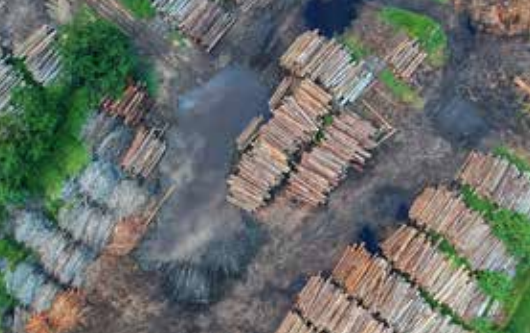Climate Action
Reducing CO2 emissions alone is not enough to address climate change. The Inter-Governmental Panel on Climate Change (IPCC) has noted that although CO2 is the main component responsible for long-term warming, the reduction of ShortLived Climate Forcers such as methane (CH4) and black carbon (BC), that operate in the short term, can contribute significantly to limiting warming to 1.5°C.16
BC is the second top global warming agent after CO2.17 The IPCC recognises the role of gas, and specifically includes LPG as a climate mitigation measure to tackle BC emissions from residential cooking. Household air pollution contributes significantly to ambient (outdoor) air pollution; globally, up to 25% of BC emissions and 15% of fine particulate (PM2.5) emissions come from burning solid fuels for household energy needs.18
LPG has an overall climate protective role when used at scale for cooking. It burns more efficiently with a lower emissions profile than firewood, charcoal and kerosene burnt in open fires or rudimentary technologies in low and middle-income settings.
In Ghana, GLPGP has projected that between 2020 and 2030, increased LPG access for cooking could result in up to 221 million trees saved, up to 9.30 million MT CO2 eq emissions and 16.6 million MT of BC equivalent emissions averted. The economic value of averted CO2 eq emissions, in terms of carbon financing, was projected to be € 29.6 – € 40.6 million cumulatively, using the 2018 prevailing price of carbon.20
In Europe, LPG offers 15% lower greenhouse gas emissions than heating with fuel oil.

SCALING UP LPG USE FOR EVERYDAY COOKING PROTECTS THE CLIMATE
A study by the University of Liverpool, UK and the Centre for International Climate and Environmental Research (CICERO), Norway, sponsored by the African Development Bank was conducted in 2017. The study modeled the health and climate impacts of scaling LPG adoption for clean cooking to 58% of Cameroon’s population by 2030 from less than 20% through the country’s national LPG Master Plan, developed in 2016 with GLPGP. A key driver of the Cameroon government’s desire to expand LPG access was concern about the severe forest loss, and related climate consequences, from the widespread use of fuelwood for cooking.
Study results show that implementation of the Master Plan is expected to reduce the emissions of short-lived climate pollutants like BC by more than a third, and ultimately avert 4.5-7.6 million tons of CO2 -equivalent over a 100-year time horizon. This will have a net cooling effect of -0.10 millidegree centigrade (milli °C) in 2030. By 2100, assuming LPG continues to be the fuel used by at least 70% of the population, a global cooling effect of -0.70 milli °C to -0.93 milli °C is forecast.

LPG for cooking reduces charcoal use and fuelwood gathering, protecting forests which help capture CO2
The IPCC’s Special Report: Global Warming Of 1.5 ºC states that “reductions of black carbon (BC) and methane (CH4) would have substantial co-benefits, including improved health due to reduced air pollution.”
